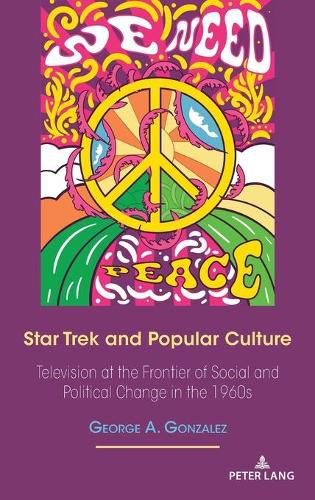Readings Newsletter
Become a Readings Member to make your shopping experience even easier.
Sign in or sign up for free!
You’re not far away from qualifying for FREE standard shipping within Australia
You’ve qualified for FREE standard shipping within Australia
The cart is loading…






This title is printed to order. This book may have been self-published. If so, we cannot guarantee the quality of the content. In the main most books will have gone through the editing process however some may not. We therefore suggest that you be aware of this before ordering this book. If in doubt check either the author or publisher’s details as we are unable to accept any returns unless they are faulty. Please contact us if you have any questions.
The 1960s (a.k.a. the 60s) remains a terrain of contemporary politics-with the values of the period embraced or rejected, as well as differently interpreted. Popular culture (movies, television) is an important means to understand and analyze the political issues and controversies surrounding the 60s-egalitarianism, equality (civil rights, feminism), as well as anti-communism (including the American war in Vietnam). In important and key instances popular culture (especially Star Trek [1966-1969]) was at the forefront of the progressive politics of the 60s. This book engages and analyzes the ongoing 60s through popular culture. The 60s is a pivotal period in American and world history-as the United States during this time turned away from white supremacy as official ideology. Also, the American public decidedly soured on U.S. military adventurism-as evidenced by broad public opposition to a military draft. Additionally, women (as a result of the feminism of the era) gained greater access to the public sphere and increased personal autonomy-non-discrimination (and anti-harassment) rules, abortion rights, and no fault divorce. Popular culture is philosophically significant because it allows people to cogitate reasons in the world-especially in the social, political realm. The creators of popular culture will often seek to offer the public authentic art, and much of the public seeks out authentic art. This makes American popular culture (in its finer forms) a viable source material about reason in the world. In this book the author doesn’t seek to deconstruct popular culture; instead, he seeks to identify and analyze the reasons in the world depicted in it.
$9.00 standard shipping within Australia
FREE standard shipping within Australia for orders over $100.00
Express & International shipping calculated at checkout
This title is printed to order. This book may have been self-published. If so, we cannot guarantee the quality of the content. In the main most books will have gone through the editing process however some may not. We therefore suggest that you be aware of this before ordering this book. If in doubt check either the author or publisher’s details as we are unable to accept any returns unless they are faulty. Please contact us if you have any questions.
The 1960s (a.k.a. the 60s) remains a terrain of contemporary politics-with the values of the period embraced or rejected, as well as differently interpreted. Popular culture (movies, television) is an important means to understand and analyze the political issues and controversies surrounding the 60s-egalitarianism, equality (civil rights, feminism), as well as anti-communism (including the American war in Vietnam). In important and key instances popular culture (especially Star Trek [1966-1969]) was at the forefront of the progressive politics of the 60s. This book engages and analyzes the ongoing 60s through popular culture. The 60s is a pivotal period in American and world history-as the United States during this time turned away from white supremacy as official ideology. Also, the American public decidedly soured on U.S. military adventurism-as evidenced by broad public opposition to a military draft. Additionally, women (as a result of the feminism of the era) gained greater access to the public sphere and increased personal autonomy-non-discrimination (and anti-harassment) rules, abortion rights, and no fault divorce. Popular culture is philosophically significant because it allows people to cogitate reasons in the world-especially in the social, political realm. The creators of popular culture will often seek to offer the public authentic art, and much of the public seeks out authentic art. This makes American popular culture (in its finer forms) a viable source material about reason in the world. In this book the author doesn’t seek to deconstruct popular culture; instead, he seeks to identify and analyze the reasons in the world depicted in it.